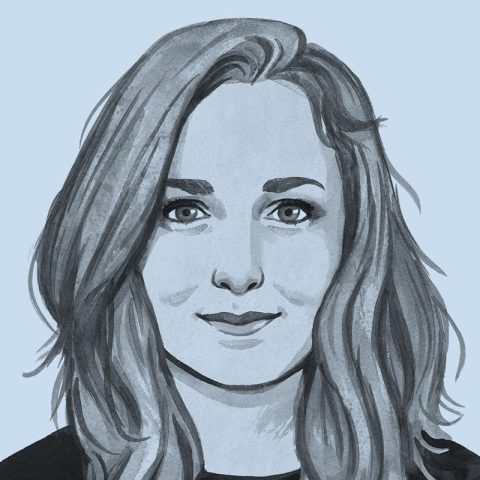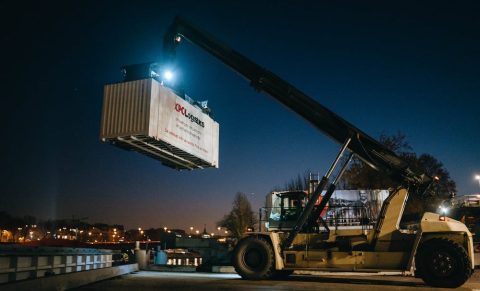More and more tonnes and TEUs, is that what we really want?

It’s a sort of race that you can not stop. Vessels are getting larger, services run more often and the containers that reach the hinterland are more and more. It is this race that encourages ports to grow bigger, trains to run more often and railway networks to expand. Is this really what we all want? And who dictates the rules of this game anyway?

These were some of the questions that triggered Dutch investigative journalists Maaike Goslinga and Maite Vermeulen to dive into the world of container shipping, which resulted in a 4 part podcast series on De Correspondent, an independent journalism platform in the Netherlands. She will present some of her findings at RailFreight Connects in Bremen, where rail and port professionals come together to discuss synergies.
“I want to talk about the large shipping alliances, about the environment and the people working on the ships” she says when asked what her main message will be in Bremen. “There are three large alliances that dominate the shipping industry. The problem is that these alliances are so big, that it is difficult to control what they do. I believe that in a democracy, we should be able to hold big companies accountable for what they do.”
Scale up inevitable
The influence of the large alliances is felt throughout the entire supply chain. Rail too sees the consequences of the scaling up of ships, ports, and terminals. With more containers ready to enter the hinterland, more transport services are needed on an already congested railway network. Hence, more infrastructure is needed. But is that really a problem?
According to Goslinga, this is problematic as many of the players involved do not really have a choice in this. “They do not have the option to say ‘no, we do not want a bigger port, or more trains on the network’, because the impact on the economy will be huge. For a smaller port, for example, it is a disaster to see shipping liners sailing to a competing port. For a smaller country, the consequences can be huge.”
More and more, is that what we want?
But isn’t growth what all parties want? This is such a difficult question, says Goslinga. “It’s a bit like saying: we build more roads to avoid road congestion. But when you create more infrastructure, you also create more demand. There will be more people who want to drive more cars. Likewise, there will be more demand for more cargo. People will want to buy more things because shipping becomes cheaper with more services. But we also need to become more sustainable”.
The environmental impact of transportation is another topic she would like to address in Bremen. “This is something that concerns us all. The shipping industry is rather passive in making the industry more sustainable. There are people that think in innovative ways, but this needs to happen on a much larger scale”, the Dutch journalist believes.
No pointing fingers
More than pointing fingers or putting away the shipping industry as the bad guys, Goslinga wants to have a discussion about this. “About the fact that the actions of a few large companies have an impact on so many people, while at the same time, this industry is so out of sight. This should be something that should be included in political discussions or discussions about the economy. But I would also like to hear from industry players how they see their role in this”.
Maaike Goslinga is the opening speaker at RailFreight Connects, which is to be held on 6 and 7 september in Bremen. Tickets for the event are still available and can be found here.





